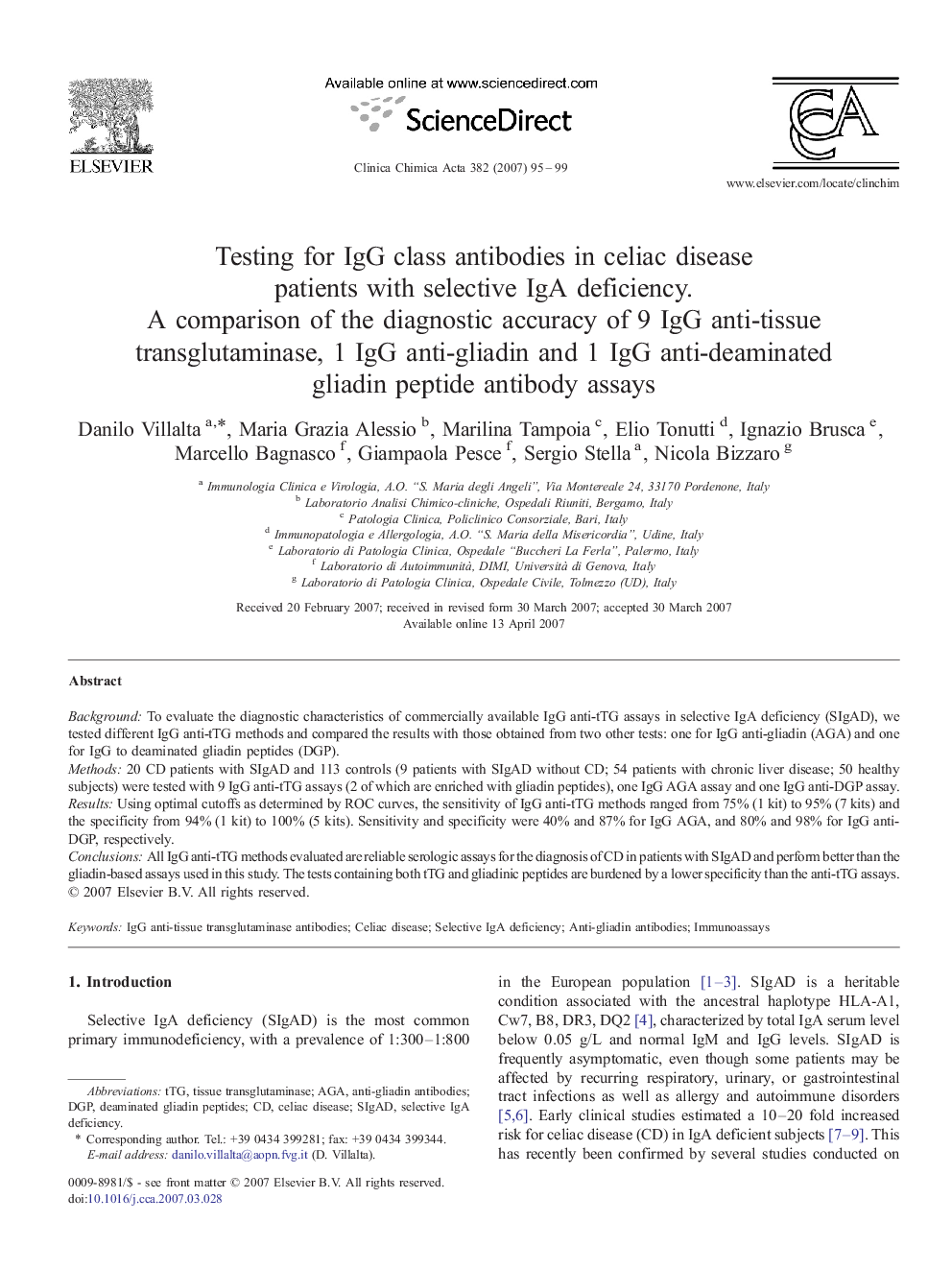| Article ID | Journal | Published Year | Pages | File Type |
|---|---|---|---|---|
| 1967591 | Clinica Chimica Acta | 2007 | 5 Pages |
BackgroundTo evaluate the diagnostic characteristics of commercially available IgG anti-tTG assays in selective IgA deficiency (SIgAD), we tested different IgG anti-tTG methods and compared the results with those obtained from two other tests: one for IgG anti-gliadin (AGA) and one for IgG to deaminated gliadin peptides (DGP).Methods20 CD patients with SIgAD and 113 controls (9 patients with SIgAD without CD; 54 patients with chronic liver disease; 50 healthy subjects) were tested with 9 IgG anti-tTG assays (2 of which are enriched with gliadin peptides), one IgG AGA assay and one IgG anti-DGP assay.ResultsUsing optimal cutoffs as determined by ROC curves, the sensitivity of IgG anti-tTG methods ranged from 75% (1 kit) to 95% (7 kits) and the specificity from 94% (1 kit) to 100% (5 kits). Sensitivity and specificity were 40% and 87% for IgG AGA, and 80% and 98% for IgG anti-DGP, respectively.ConclusionsAll IgG anti-tTG methods evaluated are reliable serologic assays for the diagnosis of CD in patients with SIgAD and perform better than the gliadin-based assays used in this study. The tests containing both tTG and gliadinic peptides are burdened by a lower specificity than the anti-tTG assays.
